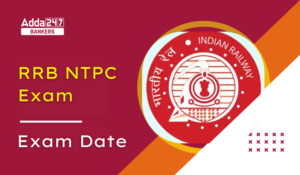The 12th Ministerial Conference was co-hosted by Kazakhstan and Switzerland. It was chaired by Mr. Timur Suleimenov, Deputy Chief of Staff of Kazakhstan’s President. The 12th ministerial conference (MC) of the World Trade Organization (WTO) is being held in Geneva. It was attended by the Trade ministers of 164 nations.
Major outcomes
1. Curtailing harmful fishing subsidies
- The WTO passed a multilateral agreement that would curb ‘harmful’ subsidies on illegal, unreported, and unregulated fishing for the next four years, to better protect global fish stocks. Since 2001, member states have been negotiating the banning of subsidies that promote overfishing. It was in line with UN SDG 14.
- India and other developing countries were able to win some concessions in this agreement. They successfully lobbied to remove a section of the proposal that would threaten some subsidies which would assist small-scale artisanal fishing. On fisheries, there would be a check on illegal unreported, and unregulated fishing in our waters and elsewhere. There would be very strict controls on overfished areas so that fish stocks are restored. Additionally, no subsidies are to be provided for fishing in areas outside EEZ or RFMOs
2. Exempt food purchased by the UN’s World Food Programme (WFP)
- Members agreed to a binding decision to exempt food purchased by the UN’s World Food Programme (WFP) for humanitarian purposes, from any export restrictions.
3. Extension of the moratorium on custom duties on e-commerce transactions
- During the MC12 session, India has asked the WTO to review the extension of the moratorium on custom duties on e-commerce transactions, which include digitally-traded goods and services
- Piyush Goyal, the commerce and industry minister who led the Indian delegation, argued that developing countries faced the brunt of the financial consequences of such a moratorium.
- From 2017 to 2020, developing countries lost a potential tariff revenue of around $50 billion on imports from only 49 digital products, he said.
- WTO members had first agreed to not impose custom duties on electronic transmissions in 1998 when the internet was still relatively new. The moratorium has been periodically extended since then.
- All members agreed to continue the long-standing moratorium on custom duties on e-commerce transmissions until the subsequent Ministerial Conference or until March 31, 2024, depending on whichever comes first.
4. Temporarily waive intellectual property patents on Covid-19 vaccines
- WTO members agreed to temporarily waive intellectual property patents on Covid-19 vaccines without the consent of the patent holder for 5 years so that they can more easily manufacture them domestically.
- The trade-Related Aspects of Intellectual Property Rights (TRIPS) decision will boost vaccine equity, accessibility & affordability. It will enable ease of authorization for the production of patented vaccines and India can produce for domestic requirements and exports.
Expected questions. Answer them in the comment section
Q1. Where was WTO ministerial conference take place?
Q2. Which edition of the ministerial conference of WTO took place?
Q3. Who chaired the 12th Ministerial conference of WTO?
Q4. For what region subsidies for dishing cant be given?
Q5. Which program is exempted from export restrictions?
Q6. In which year moratorium on custom duties on e-commerce was given?
Q7. Till which year extension of the moratorium on custom duties on e-commerce transactions is given?
Q8. For how many years temporarily waiver intellectual property patents on the Covid-19 vaccine?
Q9. What is the full form of TRIPS?
Q10. Who is the chairperson of the WTO?



 GA Capsule for SBI Clerk Mains 2025, Dow...
GA Capsule for SBI Clerk Mains 2025, Dow...
 The Hindu Review October 2022: Download ...
The Hindu Review October 2022: Download ...
 RRB NTPC Exam Date 2025 Soon, Check Expe...
RRB NTPC Exam Date 2025 Soon, Check Expe...





